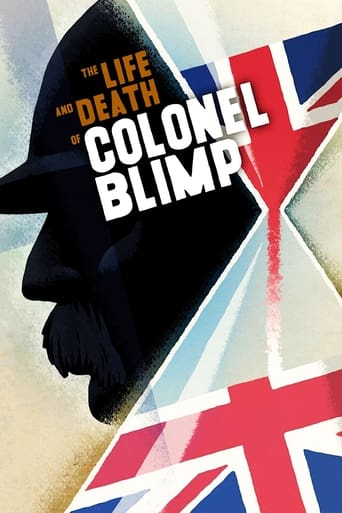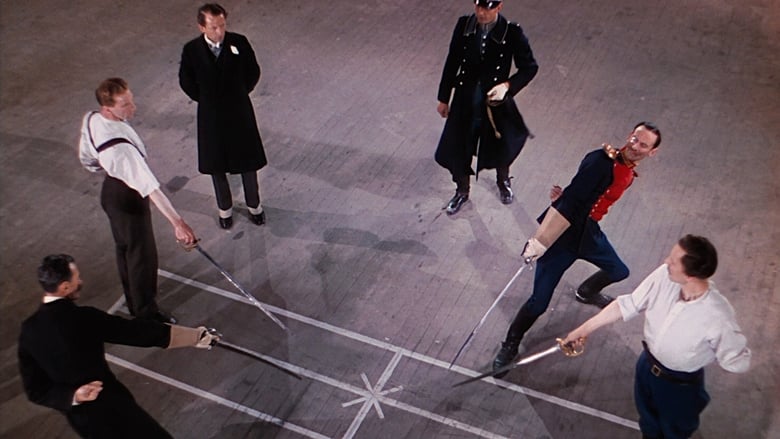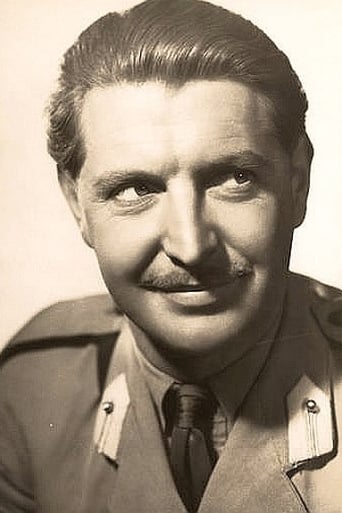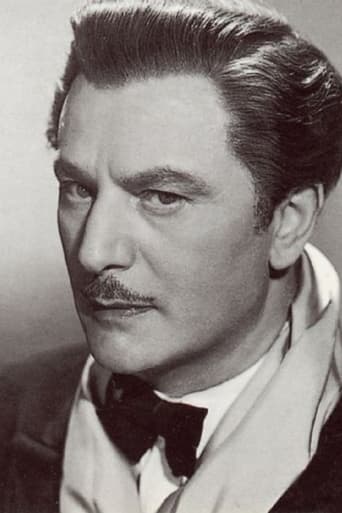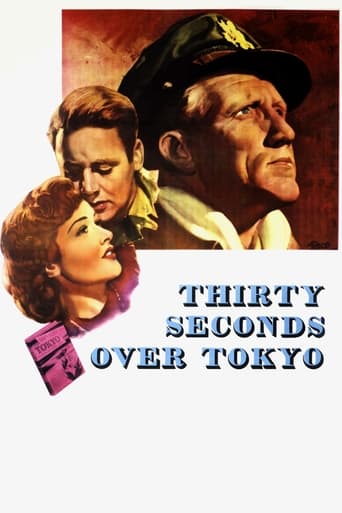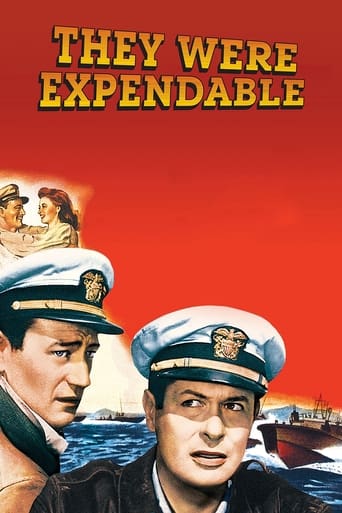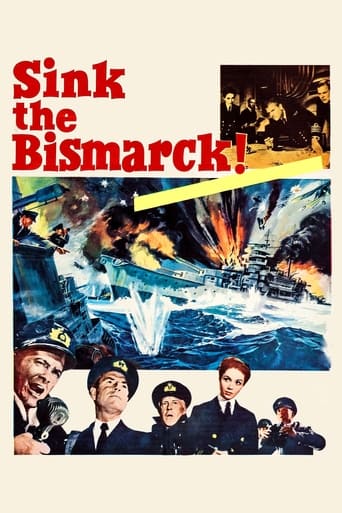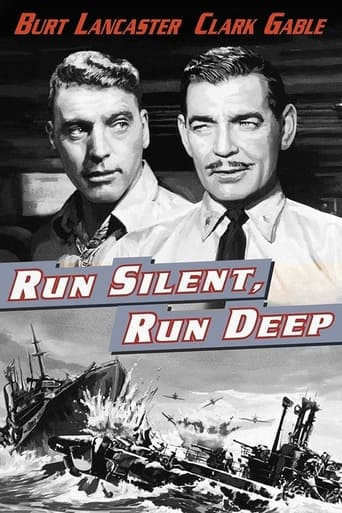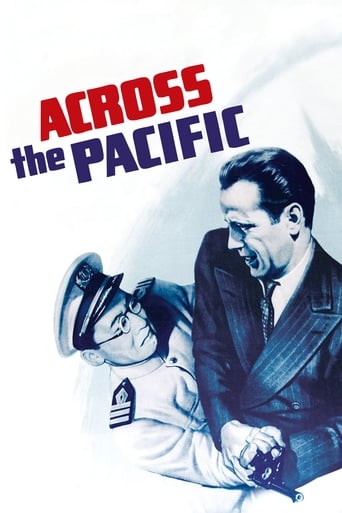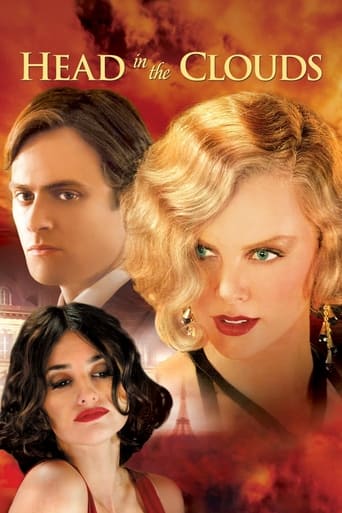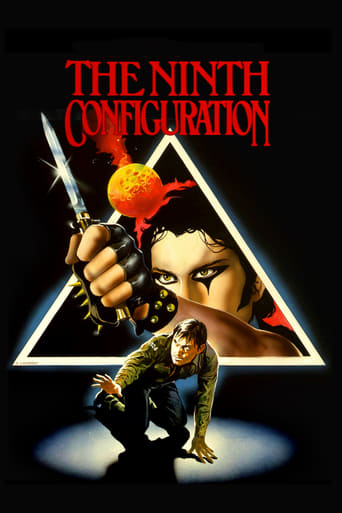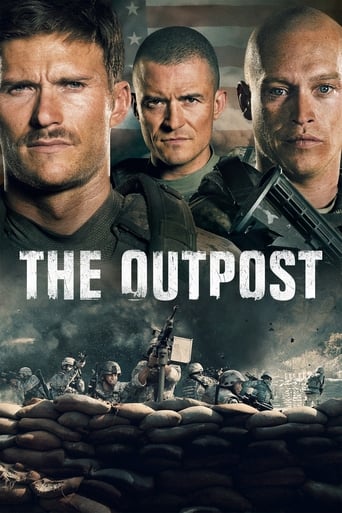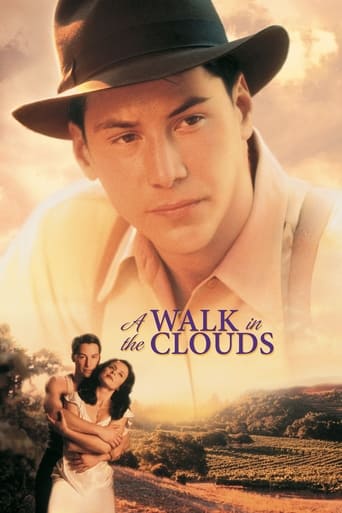The Life and Death of Colonel Blimp (1945)
General Candy, who's overseeing an English squad in 1943, is a veteran leader who doesn't have the respect of the men he's training and is considered out-of-touch with what's needed to win the war. But it wasn't always this way. Flashing back to his early career in the Boer War and World War I, we see a dashing young officer whose life has been shaped by three different women, and by a lasting friendship with a German soldier.
Watch Trailer
Cast
Similar titles
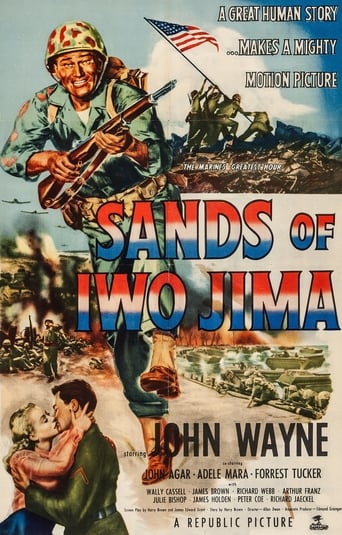
Reviews
Great Film overall
Bad Acting and worse Bad Screenplay
if their story seems completely bonkers, almost like a feverish work of fiction, you ain't heard nothing yet.
Actress is magnificent and exudes a hypnotic screen presence in this affecting drama.
So much so that I wonder if George Stevens watched this movie more than a few times. The plots are quite different, but they're both stories of the adult lives of men whose genuine greatness isn't really revealed until the end. It also amazes me that this was filmed during WWII with references to real battles.Powell is one of those forgotten directors of yesteryear but his films are enjoyable, right down to how he does the credits. And he wasn't afraid to poke fun at stereotypical British-ness. This film is in turns mildly humorous, sentimental, a little philosophical, but mostly a character study. Deborah Kerr plays three separate roles-maybe her best acting, certainly my favorite movie of hers.
Colonel Blimp was a humorous cartoon figure born in 1934 with whom British audiences would have been familiar. The inventor claimed to have been inspired by hearing British officers in a Turkish bath arguing that cavalry officers should be permitted to wear spurs inside tanks.The opening credits suggest the Victorian origins of Colonel Blimp's character by use of a needlework tapestry in which the names of the featured players are embroidered. In the center is the rotund, red-faced mounted figure of Colonel Blimp himself, clad only in his signature Turkish towel.The movie opens with a military exercise in which the Home Guard is to defend London from a simulated attack scheduled for midnight. A clever young Army officer decides to jump the gun by six hours, since "the real thing" isn't played by rules. Despite the efforts of a young female military driver (English beauty Deborah Kerr in one of three roles) the dastardly sneak attack succeeds, and the aged Home Guard commanding general and his staff are captured - in a Turkish bath.The viewer's sympathy lies with the young Army officer, who has a realistic view of World War Two. The overweight General Clive Candy - in his Turkish towel - goes red-faced and sputters through his moustache about fair play, and we laugh at the ridiculous figure with his outmoded view of war.Then the movie takes us back 40 years to see a lean and dashing officer who has won the Victoria Cross in the Boer War. Upon receipt of a letter informing him of German lies about British atrocities, he goes on a personal mission to Berlin to refute them. He meets a beautiful English governess who penned the letter (another role for Kerr) and insults the German officer corps in a beer hall, which leads to a duel with Theo Kretschmar-Shuldorff, played by Anton Walbrook (Boris Lermantov in The Red Shoes).The Bear will not spoil the outcome, but we learn the reason for the General's ridiculous mustache. The duelists become fast friends and fall in love with the same governess. Candy acts as if he could not be more pleased for the couple, but then we see him at the theater with the sister of the governess.Let's just say she's no Deborah Kerr.During WWI, now-General Candy meets a nurse who bears a striking resemblance to his first love. When the armistice is signed, he drinks a toast with his driver and gives a little speech about how the Huns waged a barbaric war, but the British won through fair play. He marries the nurse and is reunited with his old German friend, who is now interred in an English POW camp. It is significant that she is 20 years his junior; his living in the past is reflected in his obsession with his first love. After his wife dies, her portrait humorously takes pride of place in his study along with all of his other trophy heads. Her last "incarnation" is the spunky military driver "Johnny" we see in the opening and closing scenes. She happens to be the girlfriend of the cheeky Army officer who cheated in the exercise, and one of the last things General Candy does is to make sure he doesn't get in trouble. It is as if he at least finally lets go of his obsession with the girl of 40 years before and allows her to be claimed by the next generation.At a farewell dinner, the British dignitaries are mostly cool to the defeated German officer, but by the end, they're doing their best to cheer him up about the prospects for him and his country.History proved them wrong, as the original audience would know, and today's audience should never forget. World War Two was the unfinished business of The Great War.The passage of time is cleverly marked by the accumulation of wild game trophies mounted in General Candy's study. By the time World War Two arrives, the world seems to have no room for the Colonel Blimp-like General Candy, now a widower, and his quaint ideas. Once again, his German friend is in England - this time as a refugee. His wife (Candy's first love) has died and both his sons are "good Nazis."The role for Walbrook is poignant because he really did flee Nazi Germany due to two strikes against him: Walbrook was half-Jewish and a homosexual. Theo Kretschmar-Shuldorff understands that Nazis represent an existential threat to civilization, and has grown wiser with years. We feel his pain as he must watch, from the wisdom of bitter experience, his old, naive friend face humiliation.Nonetheless, General Candy seems to find a place in his old age: commanding the Home Guard. The movie ends with a replay of the beginning, only now the viewer has more sympathy for the obese general with his Turkish towel and ridiculous mustache.It is another Technicolor feast for the eyes, although not up to The Red Shoes' visual level. This was wartime, after all, and Technicolor was expensive enough. Many scenes are shot on a soundstage before painted backdrops, but that does not detract.The film starts with a lot of energy and the pace and patter is brisk with some laugh-out-loud moments. It seems almost to age along with General Candy as the terrible new realities of two World Wars take their toll. It is funny, even as we go from laughing at General Candy to laughing with him. It becomes more poignant and even sad as World War Two overtakes it even as it has overtaken its original audience.Women are depicted as intelligent and capable, eventually taking their place in uniform by the end. There are some choice anti-German lines. Here is an observation by General Candy's wife (Kerr also) as they watch German WWI POWs enjoying a concert."I was thinking - how odd they are, queer. For years and years they're writing and dreaming beautiful music and beautiful poetry. All of a sudden they start a war, sink undefended ships, shoot innocent hostages, and bomb and destroy whole streets in London, killing little children. And then they sit down in the same butcher's uniform, and listen to Mendelssohn and Schubert. Something horrid about that... "The acting is very good. Kerr has that fair-skinned beauty that seems to be unique to the British Isles, and we are treated to same kind of set-piece profile shots we see in The Red Shoes. Walbrook plays a far more likeable character than Boris Lermontov, and Roger Livesey's General Clive Candy is humorous and convincing both as the idealistic young hero of the Boer War and the idealistic old fool of World War Two.Part of the reason the Bear finds this movie interesting is in trying to see it through the eyes of the British moviegoer of 1943. To the extent the message seems to justify adopting the worst methods of the enemy in order to prevail in an unprecedented kind of war, it is a little chilling. When old General Candy's BBC broadcast is cancelled, his German friend Theo tells him this:"I read your broadcast up to the point where you describe the collapse of France. You commented on Nazi methods--foul fighting, bombing refugees, machine-gunning hospitals, lifeboats, lightships, bailed-out pilots--by saying that you despised them, that you would be ashamed to fight on their side and that you would sooner accept defeat than victory if it could only be won by those methods."Theo disagrees. He is the expert on Nazis, after all. The message of the movie is Theo is right and General Candy is wrong. To beat Nazis, you must use the methods of Nazis.By 1943, the Germans had been turned back at Stalingrad and the Japanese defeated in the Battle of Midway. The Blitz was over, but V2 rockets were in the future. It is easy for us to say the tide had turned, but Allied victory was by no means obvious at the time and much hard fighting lay ahead, including D-Day and the conquest of Germany.Boomers may have an ambivalent historical appreciation for dreadful exigencies like the fire-bombing of Dresden and the atomic bombs over Hiroshima and Nagasaki, but to see it unapologetically championed in a movie of that time is a little disconcerting. If General Candy were to find himself in today's world, his ideals of limited war and fair play (or at least better public relations) might find a more receptive audience.The movie ends on a forced, upbeat wartime note, but we are meant to see General Candy as a pitiable relic and his ideals as a thing of the past. The genuine optimism is that for all the loose social media chatter about Nazis, we did not have to become them after all.At least not permanently.
People, standoffish cartoons turned into a small miracle. Very conservative, stubborn and persistent colonel at the same time is a great idealist and romantic. Of course, in a very strange way. Directors have made sure that the film is civilized to some extent ill. Taking into account what is really happening in the time of shooting the film I can not resist the impression that some scenes seem a parody. A conflict of generations conflict of opinions and military ideology.THE LIFE AND DEATH OF COLONEL BLIMP is thematically diverse movie. Forty years period observed through a strange code of honor, lonely romance and big friendship. This film does not celebrate civilized values. Simply, shows the other side, as certain kind of balance. It makes no sense to play by the rules, if you will end evil triumph. It makes no sense to play dirty, if you do not have such an opponent. Unfortunately, in both cases found the "hand".I only watch this movie as a war, a romantic comedy. I admire specific humor, great scenery and acting, ingenuity flashbacks of that period, and incredibly good line. Roger Livesey as Clive Candy is an excellent choice for the lead role. The transformation of a young and romantic idealist to the old and unpleasant babblers who is at the heart still young idealist and romantic. In addition to the obvious makeup and aging characterization of the hero is almost perfect. Anton Walbrook as Theo Kretschmar-Schuldorff is gratifying Prussian officer. His triumphant appearance at the end of the film has become the target of challenge. A good German who spit on their country!? I think that in the context of the film that view is justified. Deborah Kerr as Edith Hunter / Barbara Wynne / Angela "Johnny" Cannon, three ladies in one. Incredible readiness and skill, talent and beauty. I bowed to the floor.
'The Life and Death of Colonel Blimp (1943)' was produced at the height of World War Two, and that such an illustrious Technicolor production was completed amid both nightly London bombings and the opposition of Prime Minister Churchill is a testament to the consummate professionalism of The Archers, producer/writer/director team Michael Powell and Emeric Pressburger. Certainly one of the more magnificent British productions of the 1940s, the film starred Roger Livesey as Clive Wynne-Candy, an illustrious veteran who with the onset of WWII, to his dismay, finds himself ignored by those who should be respecting his military experience rather than dismissing it. Livesey (a replacement for Laurence Olivier) plays Candy in three stages of his life, authentically and sympathetically tracing his fluctuating disillusionment with "honourable warfare" through years of hard-earned living. The portrayal sidles a delicate line between geniality and parody, and as a lifetime-spanning dramatic performance, it's easily on par with Robert Donat in 'Goodbye, Mr. Chips (1939)' and Orson Welles in 'Citizen Kane (1941).'The film's title was borrowed from a comic strip by David Low, in which the titular Colonel Blimp was presented as dim-witted British reactionary, a bloated old man with a walrus moustache who issued absurd political commands from the comfort of a Turkish Bath – "Gad, sir," he once says, "we must have a bigger Army to protect the Navy, and a bigger Navy to protect the Army." As a political candidate, Low's Colonel Blimp proposes "shooting down politicians and establishing a Dictatorship of colonels to safeguard democracy." Contradictory and anachronistic, a symbol of both jingoism and complacency, the character epitomised Low's dissatisfaction with contemporary British politics. Powell and Pressburger's version of Colonel Blimp is substantially more sympathetic, tracing in flashback the leading character's transformation from a young, impetuous Boer War soldier to a pot-bellied veteran with an outmoded belief system. As the times changed, our Colonel Blimp didn't. But a new World War demands a new set of rules, and if Britain is to survive she must embrace the dishonourable tactics of her enemy.I originally decided to watch 'The Life and Death of Colonel Blimp' as a tribute to the recently-deceased cinematographer Jack Cardiff, but I apparently got the film confused with a later Powell and Pressburger production, 'A Matter of Life and Death (1946).' Cardiff did, indeed, serve as a camera operator in 'Colonel Blimp,' but the praise for the film's breathtaking Technicolor photography must go to Georges Perinal, who captures and savours every vibrant hue, transforming each frame into a vivid cinematic canvas. If for no other reason, then the decision to shoot in Technicolor was worthwhile for capturing the stunning green eyes and red hair of Deborah Kerr in her first major role. As Clive Candy's "romantic ideal," to which all other women in his life must aspire, Kerr demonstrates such beauty, elegance and independence that you just about want to marry her – not once, but three times. Antony Walbrook also does an excellent job as the impressively-named Theo Kretschmar-Schuldorff, Candy's German duelling opponent and later best friend.Powell and Pressburger, to their credit, didn't deal in stereotypes. Even in propaganda pieces like '49th Parallel (1941),' the enemy Germans were portrayed as ordinary humans, with their own hopes and ambitions. Likewise in 'Colonel Blimp,' the character of Kretschmar-Schuldorff is inherently good, despite his occasional disenchantment towards the "winning" side. Note, for example, how readily Candy and his adversary reconcile their differences in the Berlin nursing-home, not with violence – as was forced upon them by their respective nations – but through mutual understanding; its with some irony that the filmmakers satirise how easily individuals, but not countries, can reach a satisfactory compromise. The manner in which Powell and Pressburger goodnaturedly (and even nostalgically) poke fun at the stuffy ceremonial formality of traditional warfare reminded me of the exploits of fictional French patriot Brigadier Ettiene Gerard. Pressburger must certainly have been aware of the stories, since he worked in a reference to Arthur Conan Doyle {and while we're on the topic, watch out for Arthur Wontner and Ian Fleming, who had previously played Sherlock Holmes and Dr Watson, respectively}.
